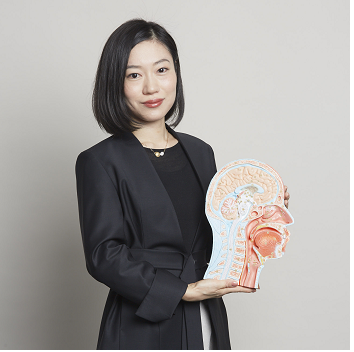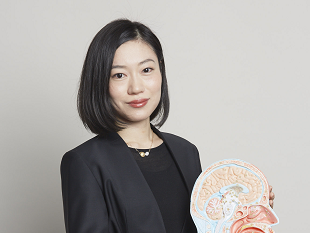環境が「脳」に歩み寄り、 人間と環境のバリアを解消できる社会へ 小泉愛研究員

人が時を重ねて生きていく中、脳は環境への適応を支えてくれています。ですが、遺伝が脳の発達を大きく方向づけたり、トラウマが脳に強い記憶を刻み込んだりと、脳の適応力は弱まってしまうこともあります。私は、そうした脳の振る舞いを必ずしも「異常」として捉えるのではなく、「揺らぎ」や「個性」として享受できるメンタル・バリアフリー社会の実現を目指します。
例えば、トラウマ経験の直後から脳や心の揺らぎをモニタリングし、PTSD発症を予測して適切な予防に繋げる技術の構築と普及に取り組みます。また、一見すると不適応に見える脳の個性にも、その裏には優れた才能が潜んでいる可能性に着目し、精神疾患を従来よりも包括的で肯定的に捉える研究アプローチの構築にも取り組みます。こうした研究活動を通して、誰もの脳の揺らぎをしっかりと見守り、脳の個性に価値を見出して活かせる社会づくりに貢献します。
Worldviews
Keywords
Selected Publications
Aurelio Cortese and Kaoru Amano and Ai Koizumi and Mitsuo Kawato and Hakwan Lau
Multivoxel neurofeedback selectively modulates confidence without changing perceptual performance.Nature Communications | Vol.7, 2016
Ai Koizumi and Kaoru Amano and Aurelio Cortese and Kazuhisa Shibata and Wako Yoshida and Ben Seymour and Mitsuo Kawato and Hakwan Lau
Fear reduction without fear through reinforcement of neural activity that bypasses conscious exposure.Nature Human Behaviour | Vol.1, 2016
Ai Koizumi and Hakwan Lau and Dean Mobbs
Is fear perception special? Evidence at the level of decision-making and subjective confidence.Social Cognitive, and Affective Neuroscience | Vol.11, pages 1772-1782, 2016



